
%20(1).png)
In many senior care facilities or rehabilitation centers, cognitive skills training has become a daily topic. Whether it is helping older adults maintain cognitive engagement, or supporting stroke survivors in rebuilding daily living abilities, we know that consistent brain training is very important for improving quality of life.
In the past, the most common methods were board games, puzzles, number games, or even handicrafts. These activities do stimulate the brain, but over time, many staff encounter a few challenges:
1. Seniors easily lose interest in repetitive activities
2. Therapists need to spend a large amount of time preparing materials
3. Effectiveness is difficult to measure objectively, often relying only on observation
These challenges make us reconsider: is there a more efficient way that can truly attract seniors?
In the United States, the pace of population aging is accelerating. Many long-term care providers and healthcare professionals note: “We are seeing a clear increase in dementia diagnoses year after year.” The data confirms this trend.
Research shows that when older adults regularly engage in structured cognitive activities, their brain networks remain more stable, which can help maintain function. One such study was published in eBioMedicine (part of The Lancet family of journals), providing strong academic support for the benefits of ongoing cognitive engagement.
At the same time, recent US studies highlight the scale of the challenge:
· More than 2 in 5 adults over age 55 are expected to develop dementia in later life (Nature Medicine).
· Annual new cases are projected to double — from about 514,000 in 2020 to nearly 1 million by 2060.
Behind these numbers are the residents and community seniors we meet every day. As memory and concentration gradually decline, many daily tasks become difficult, even affecting independence and emotions.
Therefore, relying only on traditional puzzles or memory cards, while helpful, is not enough to meet today’s challenges. We need training methods that are more personalized, more engaging, and able to continuously track activities to truly support older adults.
Through AI or smart systems, therapists can more quickly design appropriate activities for seniors of different levels.
For example, for residents with weaker memory, more repetitive matching games can be arranged; for those with poor attention, reaction-speed challenges can be added.
Some AI-assisted training systems on the market (such as GOPod) can automatically recommend tasks and images, and even adjust difficulty instantly. This reduces therapists’ preparation time while making activities more tailored to seniors’ needs.
Many seniors prefer “playing together” rather than alone. When exercises can be projected on a large screen, allowing a group to participate at the same time and compete, the atmosphere naturally becomes livelier. This kind of social interaction itself has positive effects on mood and engagement.
For example, GOPod can connect to multiple sensors simultaneously, supporting group participation modes, making group activities more dynamic and inclusive.
Another benefit of technology is that all performance can be recorded, including reaction time, accuracy, and participation frequency. For therapists, this data is not only for reports but also an important basis for adjusting activity programs, helping us objectively see participants’ progress. All information is protected with end‑to‑end encryption (TLS in transit, AES‑256 at rest), ensuring banking‑level security and HIPAA compliance so facilities can use GOPod with confidence.
These new types of cognitive activities are gradually entering various service environments:
· Daily activities in senior living facilities: making participation more engaging instead of routine
· Rehabilitation centers: combining movement and cognitive engagement to support recovery
· Community services or outreach: portable equipment allows easy transport to different venues, with high flexibility
· Special education: not only for older adults, but also helpful for children with autism or ADHD to improve attention and sensory integration
If we use one word to describe the future of cognitive skills training, it should be “interactive.”
Because with interaction, training becomes fun; with fun, seniors are willing to participate; when participation increases, outcomes become more meaningful. In addition, with data support, professional teams can adjust programs more quickly so that each user’s needs are addressed.
Today, cognitive skills training is no longer just puzzles or memory cards. It can now integrate AI, sensors, and interactive systems to create a more comprehensive experience. For facility administrators, this means improving service quality more effectively. For therapists and activity coordinators, it reduces preparation workload and lets them focus on where expertise is most needed.
If you are considering how to improve cognitive skills training in your facility or center, pay attention to these new-generation interactive tools. They are not only technology products but also supportive solutions that help professional teams maximize their impact and allow participants to benefit.
GOPod is an innovative cognitive skills training platform designed to enhance attention, memory, and problem-solving practice.
GOPod is
· FDA-registered device (United States)
· FCC certified
· HIPAA compliant for protecting personal health information
· Available in English, Spanish, Portuguese, and Chinese
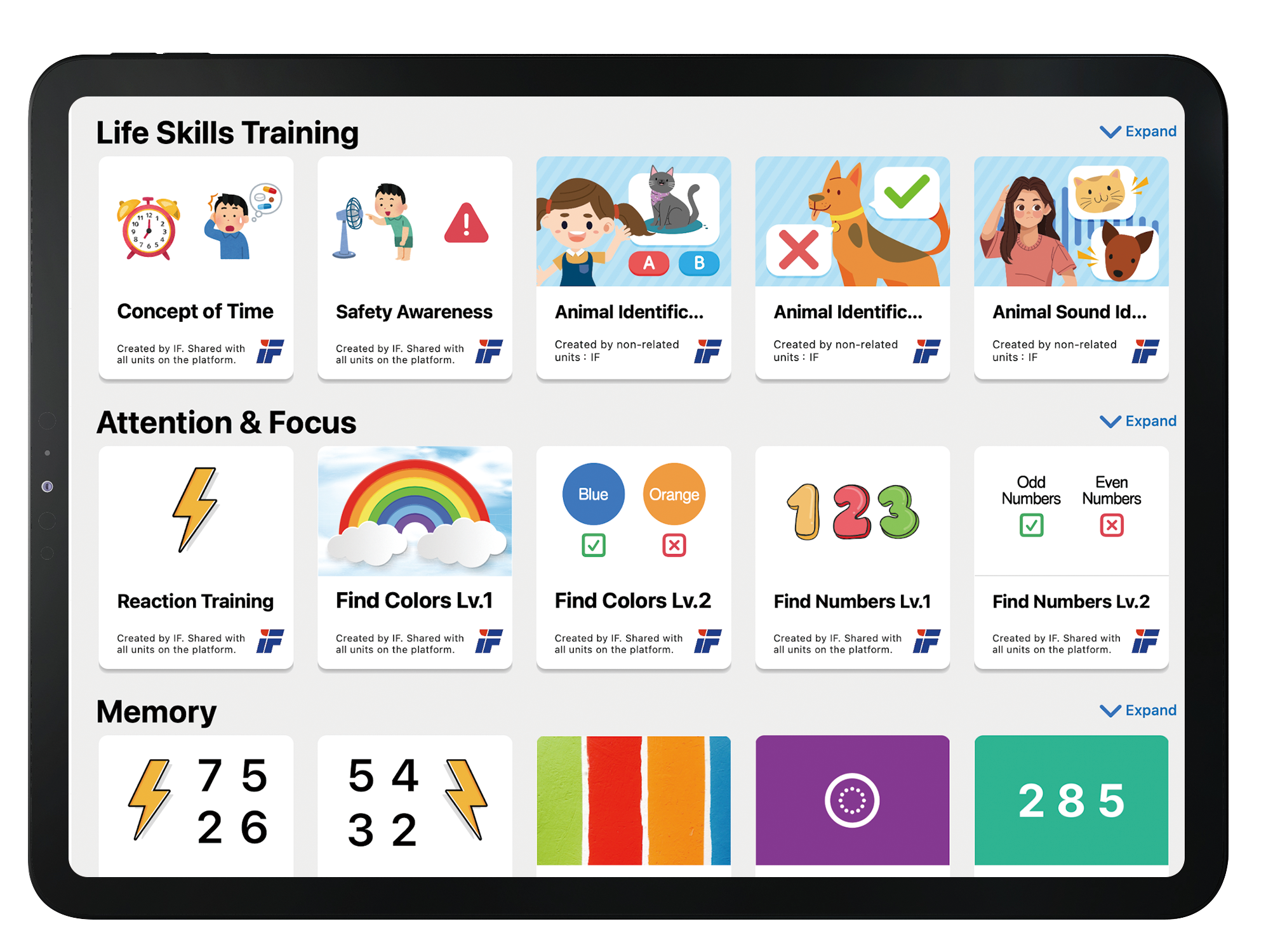
Content based on real-life settings and familiar experiences, such as recognizing transportation, occupations, childhood items, dim sum, and Mahjong tiles — making activities more relatable and engaging.
Practical exercises to support independence, including:
· Home safety awareness
· Time management
· Seasonal clothing choices
· Public transportation etiquette
· Functions of furniture and appliances
· Road-crossing and transportation safety
Exercises that integrate familiar and enjoyable elements to strengthen problem-solving and reasoning skills. Examples: shape recognition, money calculation, Mahjong sequencing, and object counting.
Short-term and working memory activities such as flash number recall and color memory tasks.
Using old occupations, objects, and childhood games, GOPod guides seniors to revisit past experiences, stimulating long-term memory and encouraging communication.
AI automatically recommends training content and related images, saving therapists preparation time. Activities can be personalized according to each participant’s level, improving efficiency in memory and attention exercises.
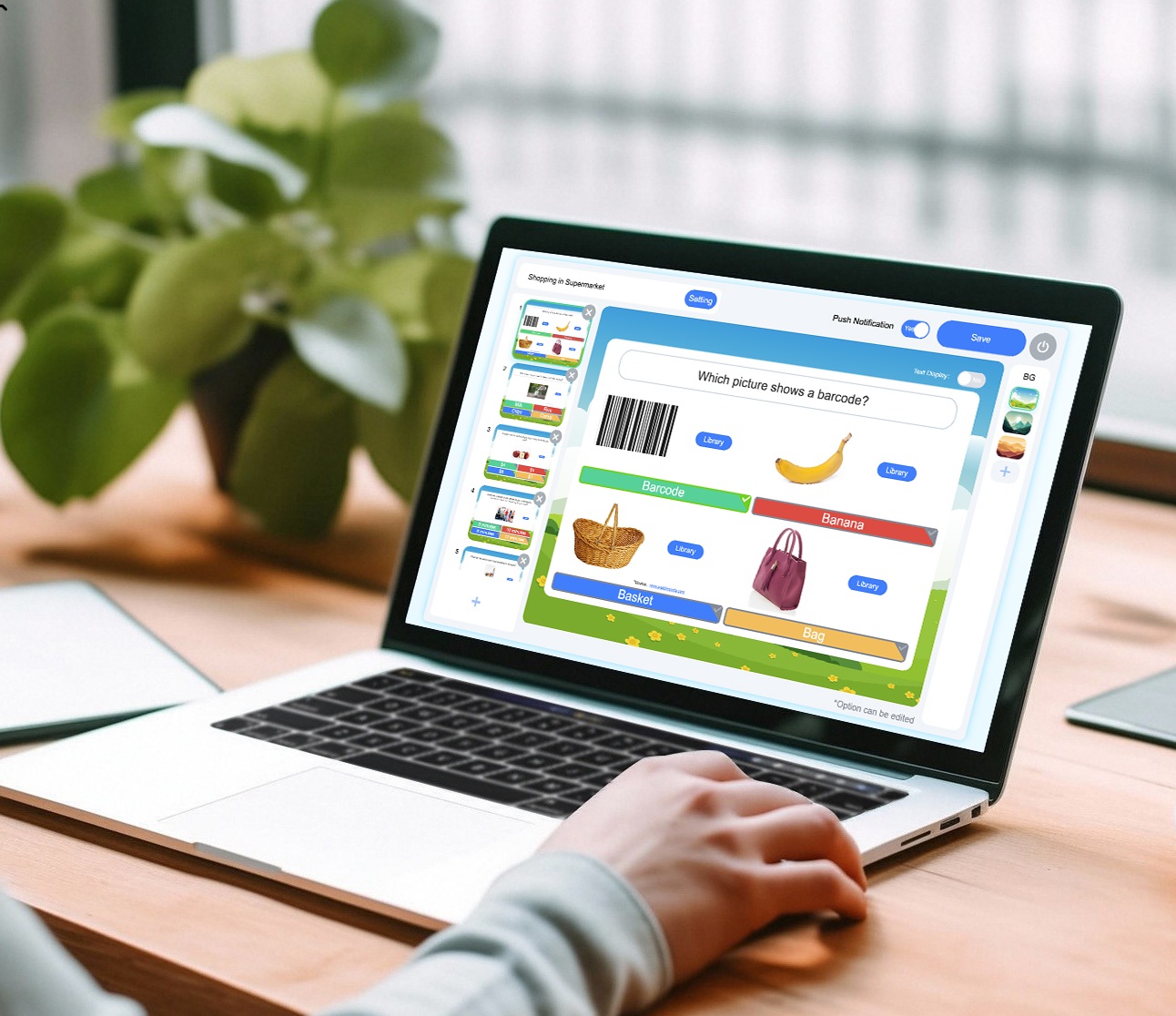
Diverse games designed for memory, attention, coordination, and multitasking, making activities fun and engaging.
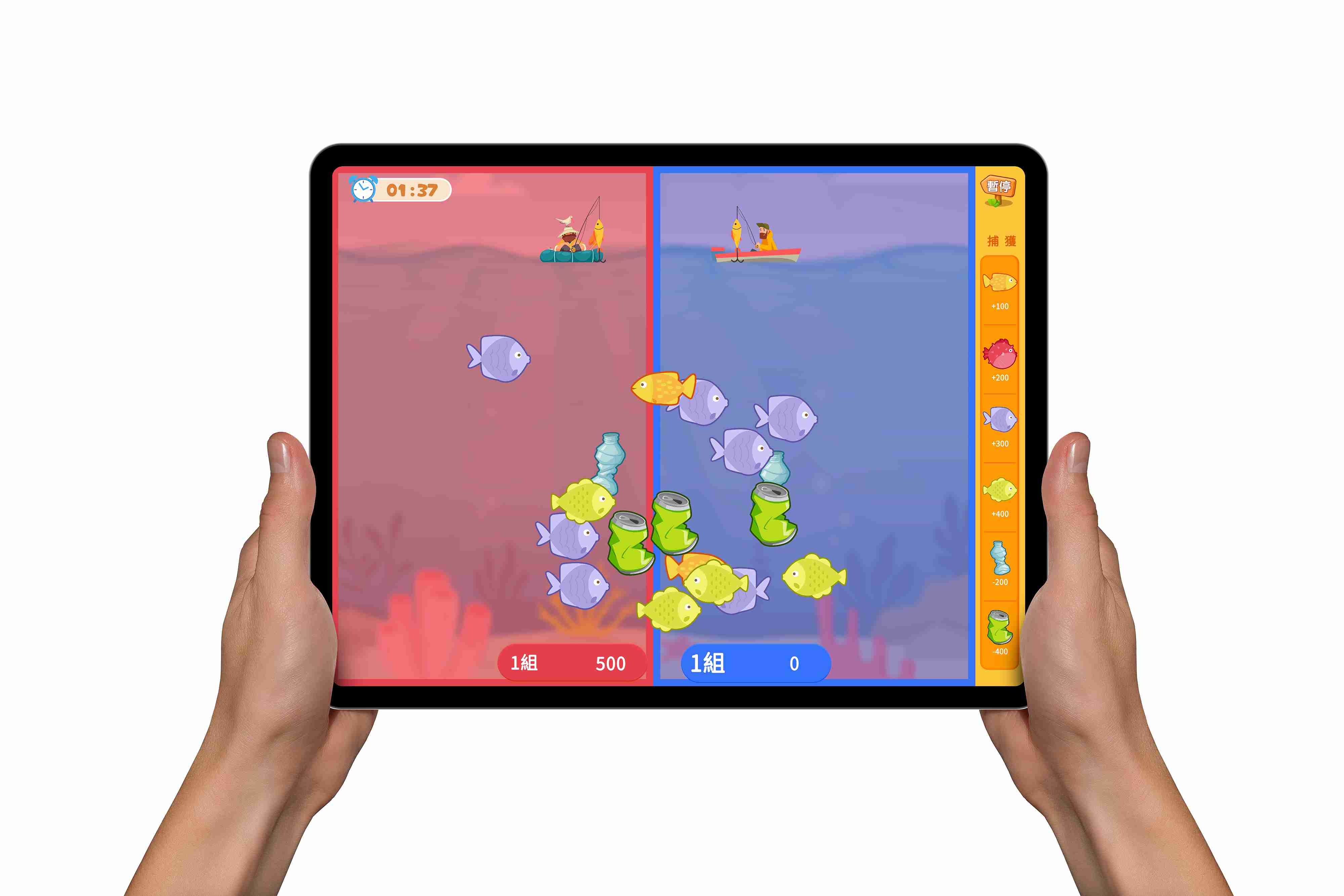
Supports both individual and group participation, with up to 8 sensor sets (64 GOPod devices) and up to 32 users at the same time. Questions and scores are displayed on a large screen, enhancing interaction and encouraging social participation.
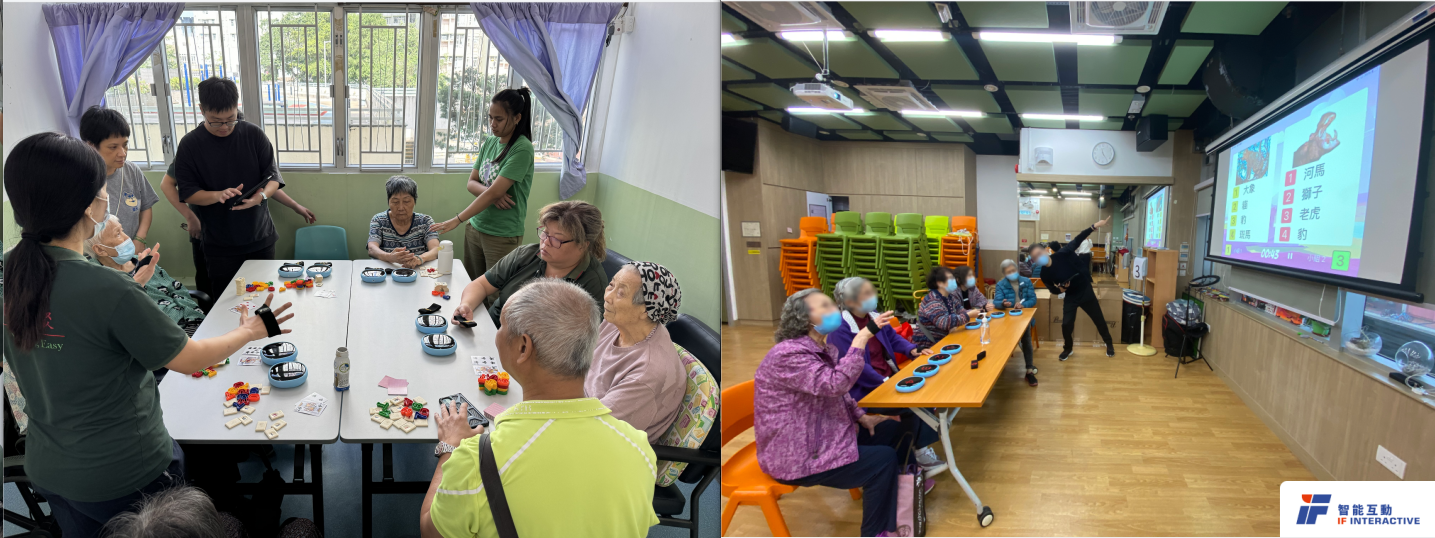
Track each user’s activity progress and performance, generating detailed reports to assist therapists in adjusting programs. GOPod comes with apps and interactive sensors, combining advanced wearable sensing technology and AI. It supports both individual and group training modes, can automatically record each user’s activity performance, and generates personalized activity plans and reports.
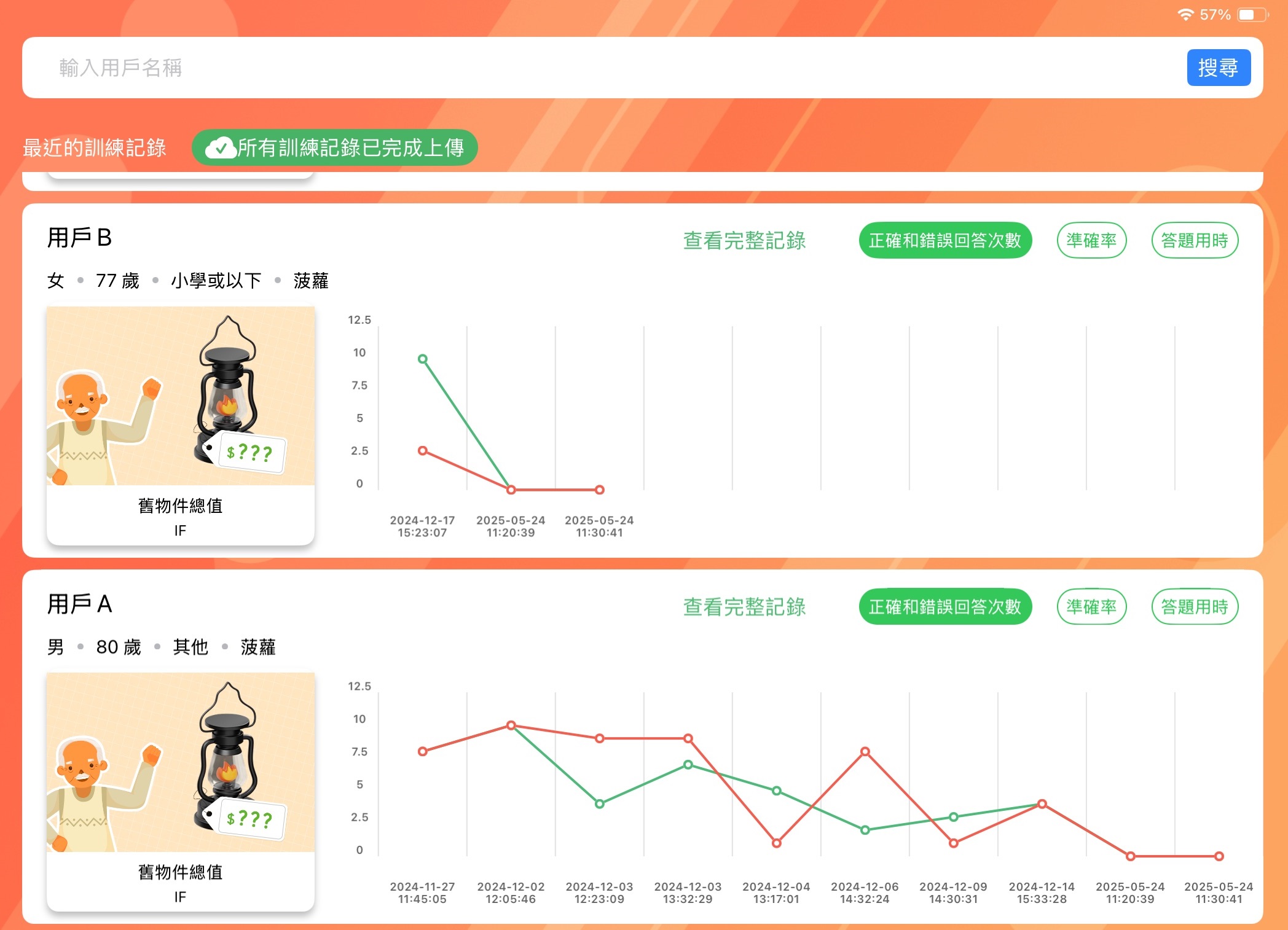
GOPod is trusted by close to 170 NGOs and 300+ service units in Hong Kong. Contact us to request a demo.

